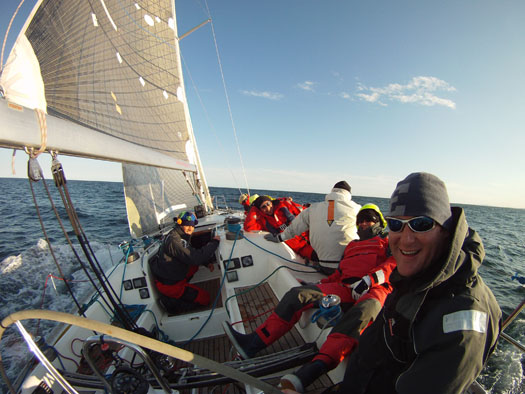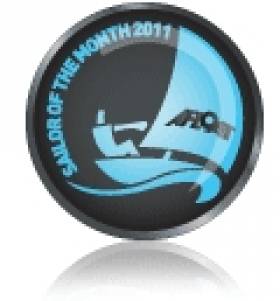Displaying items by tag: Nationa
Matt Davis is September's Sailor of the Month
The welcome revival of the offshore racing programme in the Irish Sea has been steered by Peter Ryan of the National Yacht Club in Dun Laoghaire, but without the enthusiastic crew like the Skerries squad, it just wouldn't happen.
Apart from the continuous effort of keeping a frontline offshore racer and all her equipment in sound working order, the demands on personnel for time in this crowded era can be quite exceptional. The logistics are formidable, as the regular cross channel ISORA programme is based on a willingness to alternate between starting points on the Welsh and Irish coast.

Matt Davis and crew on board Raging Bull in one of this year's ISORA races. Photo: Brian Carlin
For boats heading for an away start, it often involves an overnight passage beforehand. In the case of Raging Bull, all starts are away events, as the programme does not as yet take in Skerries. But we can hope that this will change in the future, as the nucleus of a Fingal offshore racing group develops around the Davis success.
With the summer of 2011's uneven weather, Raging Bull's crew had to be fit and ready to take full advantage of their boat's proven ability in rugged weather, while at the same time managing to turn in a respectable performance in light airs.
For the first time, the biennial Dun Laoghaire-Dingle race was recognized as an ISORA event, and Davis and his crew revelled in it. For much of the race they were the only boat mounting a significant challenge to the pace setter, Martin Breen's Reflex 38 Galway Harbour. Though the Skerries boat had to be content with the runner-up slot to the Galway boat in Dingle, they were first of all the ISORA participants, a top score which stood well to them when they continued with the Irish Sea programme right up until mid-September. Despite the limited size of the harbour, the maritime spirit of Skerries is manifesting itself in many areas of sailing, and Matt Davis's achievement is typical of the special Fingal fervour.
More on Matt's 2011 victory in Autumn Afloat magazine out next week!More ISORA News here





























































